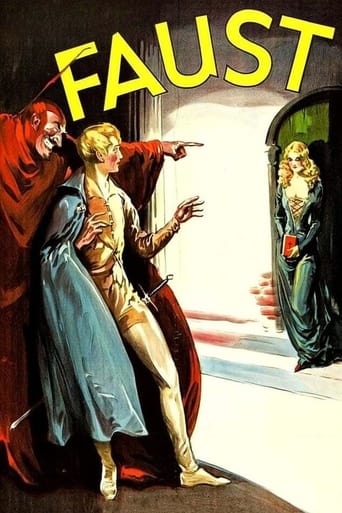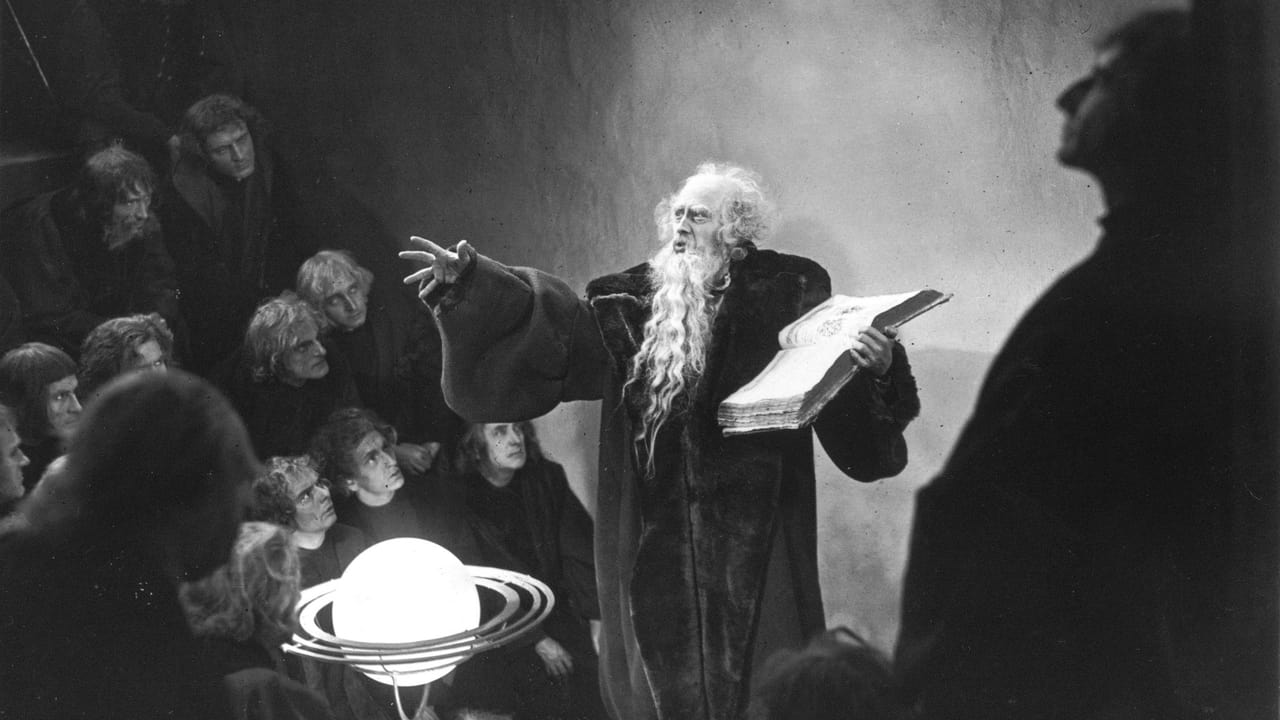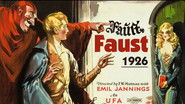Eric Stevenson
There's actually a funny story behind my viewing of this movie. It started off a week or so ago as I was renting movies and saw the film "Excalibur". A lot of it seemed familiar to me and that was because I forgot that I already reviewed it! I had to watch a new movie every day so I tried watching bits and pieces of this film over a week's span. I finally got the whole thing done today. I was shocked to find out that this film was listed here as being 85 minutes long.The version I saw was 115 minutes long! I now realize I was watching an updated version and I'm certainly glad to have come by that. I always want to see the longest version of a great movie. I thought that I knew the plot to this film. I had actually mistaken it for "The Devil And Daniel Webster". A deal with the Devil is just so common, since the beginning of fiction. From the first two minutes, I knew this was a great movie! We get these wonderful effects showing off Heaven and Hell. Initially, Faust's deal is actually selfless as he wants to help other people. I love how we just keep getting these different scenes of all these different characters. It's hard to keep up with, but it's so beautiful to look at and you can tell a lot of detail was put into the plot. We are taught some interesting things about love and morality. ****
TheLittleSongbird
For me, along with Metropolis, The Gold Rush and The Passion of Joan of Arc, this is one of the finest movies of the 1920s. In design and direction especially, Faust is a masterpiece. It has a great story with a strong operatic feel, and the characters are great, Mephistopheles is especially memorable.F.W.Murnau's direction is superb. This is especially true in the duel between Faust and Mephistopheles which defines the term epic in every sense, and part of the reasons why it works so well is the wonderfully malevolent atmosphere that Murnau, Robert Herlth and Walter Rohrig create. The music fits amazingly well and the story despite one or two scenes in the middle that drag just a tad is compelling.The acting is very good. Gosta Ekman does a fine job conveying his character complete with a believable transformation from decrepitude to youth, while Camilla Horn is suitably pure. As the imposing demon Mephistopheles, Emil Jannings with a magnetic appearance and presence steals the film, while he does keep some of his comedic qualities there are times where he is quite terrifying.Other than Jannings' performance and Murnau's direction, what makes Faust such a masterpiece are the expressionistic images which inspired by Casper David Frederich's paintings are amazing, with excellent cinematography and sculptures of smoke, light and steam to compliment them. All in all, a brilliant film and one of the best of its decade. 10/10 Bethany Cox
Ilpo Hirvonen
Friedrich Wilhelm Murnau was the most important director of the German expressionism era. He made 22 films from which only 11 have persisted. Murnau often made several different versions of his films, which made it impossible to tell which was the original one. Faust was no exception; he made 9 different versions of it whose editing, rhythm and acting differ from each other. F.W. Murnau did a lot of breakthroughs in cinema - he's the most influential filmmaker of his time. For instance in his earlier film Der Letzte Mann (1924, The Last Laugh) Murnau used the camera as a character for the very first time. It was the first time the audience couldn't tell when you were watching the events as an outsider and when as a character. Faust is no lesser. Eric Rohmer has written about it in his dissertation and Herman G. Weinberg saw Faust as the most beautiful film ever made.Everybody knows the German writer Goethe who wrote Faust. But the story did live before his play. It lived as a folktale. And this is where the critics did wrong. They thought that Murnau's Faust was a fiasco; probably because they tried to compare it to the original play. But F.W. Murnau did Faust (1926) based on the folktale. So the philosophy of Goethe's Faust was left away. The production company (UFA) of Faust also produced another artistic film, Metropolis by Fritz Lang. When the audience didn't like either of these films the company failed.Faust is a story about God and Satan who wager. A man, Faust, agrees to sell his soul to Satan so he can have all the power of the world. First he wants to use the power to help the diseased people but the temptations of eternal youth and beauty win. "Damned be the illusion of youth!" Faust is a timeless story because the idea of selling one's soul will always be there. Faustic contracts are still made. There is only one thing that can terminate the contract. Liebe - Love. The flaming word appears on the screen to assure us. Earlier I mentioned the new camera-work of The Last Laugh. But Faust did something new too. It was the first film that was based on the metaphorical force of light and shadow. The use of shadows in Faust is symbolic and brilliant. When talking about light and Murnau one might be reminded of Nosferatu (1922), a Gothic vampire story by F.W. Murnau, where the beams of light killed Nosferatu.Faust deals with essential and timeless themes. On the surface the themes are good and evil but Faust is much more complex than that. I would recommend this masterpiece of the German Expressionism to all film lovers. I wouldn't be surprised if one said that Faust is the best film ever made. F.w. Murnau manages to capture real humane emotions.
Cristi_Ciopron
Murnau's masterpiece captures the Gothic genius of the original folktale—and it is obvious that such a story would never have came from a Latin or even Slavic people—it required the uncanny Gothic genius. In these Germanic peoples the platitude (the banality, the philistinism, the petty bourgeois dullness) and the Gothic coexist.Gretchen is both nice and well played; Murnau's Faust is a creepy metaphysical romance, made with flawless taste and snappy aplomb by the German director. Now Murnau's genuine flair for the Gothic and the weird is obvious—his sets are made out of light and darkness, the Christian element (of rituals, practices, customs) is strongly contrasted with the chaos and delusion brought by Faust's new master.Notice that the protagonist, Doktor Faust, is a scientist—or an alchemist, anyway, not a meta-physician, but rather an enquirer of the nature, like Dr Frankenstein. For the folk, the idea of philosopher is that of a naturalist, of a scientist, even an alchemist or an occults, not of a speculative thinker. Think a little about these: Faust—Marlowe—Goethe—Hegel—Mann—Bulgakov—Frankenstein.


 AD
AD



